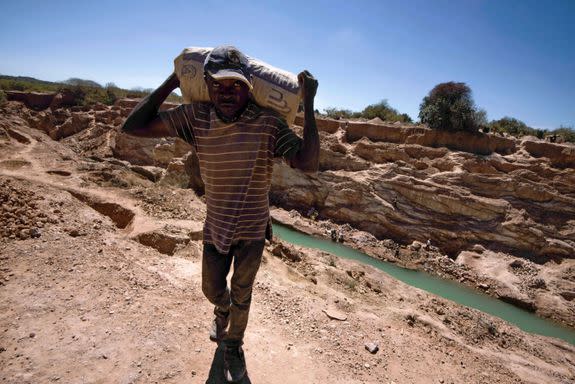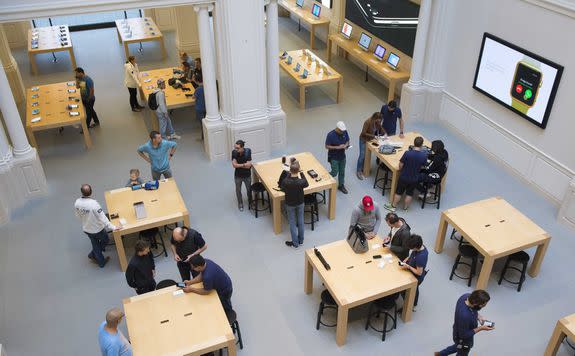Apple wants your applause for a mining goal without a plan

Please clap.
Apple wants to stop mining for rare Earth metals and other components that help its technologies work. The company announced this through its recently-released 2016 environmental responsibility report, and via a nice little rollout with the help of Vice.
Everything Apple builds, they say, will one day be made from recyclable materials such as copper, aluminum, and tin. No more digging up the Earth for cobalt, tantalum, tungsten and other rare earth metals.
SEE ALSO: New drone footage gives us the best look at Apple's spaceship campus yet
But Apple has no public timeline to complete this goal. Lisa Jackson, the company's vice president of environment, policy, and social initiatives, told Vice that company officials are a bit "nervous" because they don't have a plan, either.
Some of this seems fine — the goal, after all, is admirable, as it sets a higher target than Apple's competitors. It was even lauded (with caveats) by Greenpeace, an advocacy organization.

Image: JUNIOR KANNAH/AFP/Getty ImagesAFP/Getty Images
But Apple is choosing not to take some steps that would speed up their timeline.
First, Jackson said Apple is not about to make it easier for customers to repair their own phones.
She defended that stance with this: “I think trying to pretend that we can sort of make it easy to repair the product, and that you get the product that you think you’re buying — that you want — isn’t the answer.”
Apple needs minerals mined from the ground to build its products, as do its rivals. Those products are held together with special screws and other pieces you can't find in the average repair shop. This is intentional.
It means Apple can make money when it sells you an iPhone and on your return to the Apple store after you've fumbled your phone down the stairs and lacerated its screen. Instead of being able to fix your phone with readily available generic parts, each broken iPhone means more mining for the creation of specialized items.
Either that, or iPhone owners decide to buy a new one, since the price of repairs often makes it more cost-effective to just get an updated device. If repairs were made easier, though, that would increase the longevity of Apple's products, which would in turn reduce the demand for mining.
Alas.

Image: lex van Lieshout/Epa/REX/Shutterstock
Speaking of fewer phones, Apple has been accused of planning the demise of old devices, forcing the purchase of new ones. A December, 2015 lawsuit, for example, alleged Apple knew a software upgrade could hamper its older devices. The company makes its recyclers shred old devices so they can't be reused. Whether you believe this is a deliberate move to create product obsolescence or not, the company does roll out new products with regularity, and it certainly doesn't discourage you from discarding your still more than functional iPhone for the shiny next edition.
Apple's environmental responsibility report acknowledges their mining goal will take "many years," and Jackson told Vice that only a marginal amount of the iPhone is currently built from recyclable materials. Perhaps that's why they haven't released a timeline and don't have a plan?
Thus far, Apple's touted recycling initiatives include "disassembly robots" that pull apart old iPhones for use in new ones, and a campaign "encouraging more customers to recycle their old devices through Apple Renew."
Again, fine, sure. These are good things that will benefit the environment. But when a seemingly major component of your anti-mining initiative is to ask customers to give you their old devices on top of regularly purchasing those devices and repairing said devices only at your shops, it feels a little like a goal that will be achieved on a timeline tied to profit, not speed. This is hardly sufficient for the most valuable company on Earth, which prides itself on its environmental ambitions.
